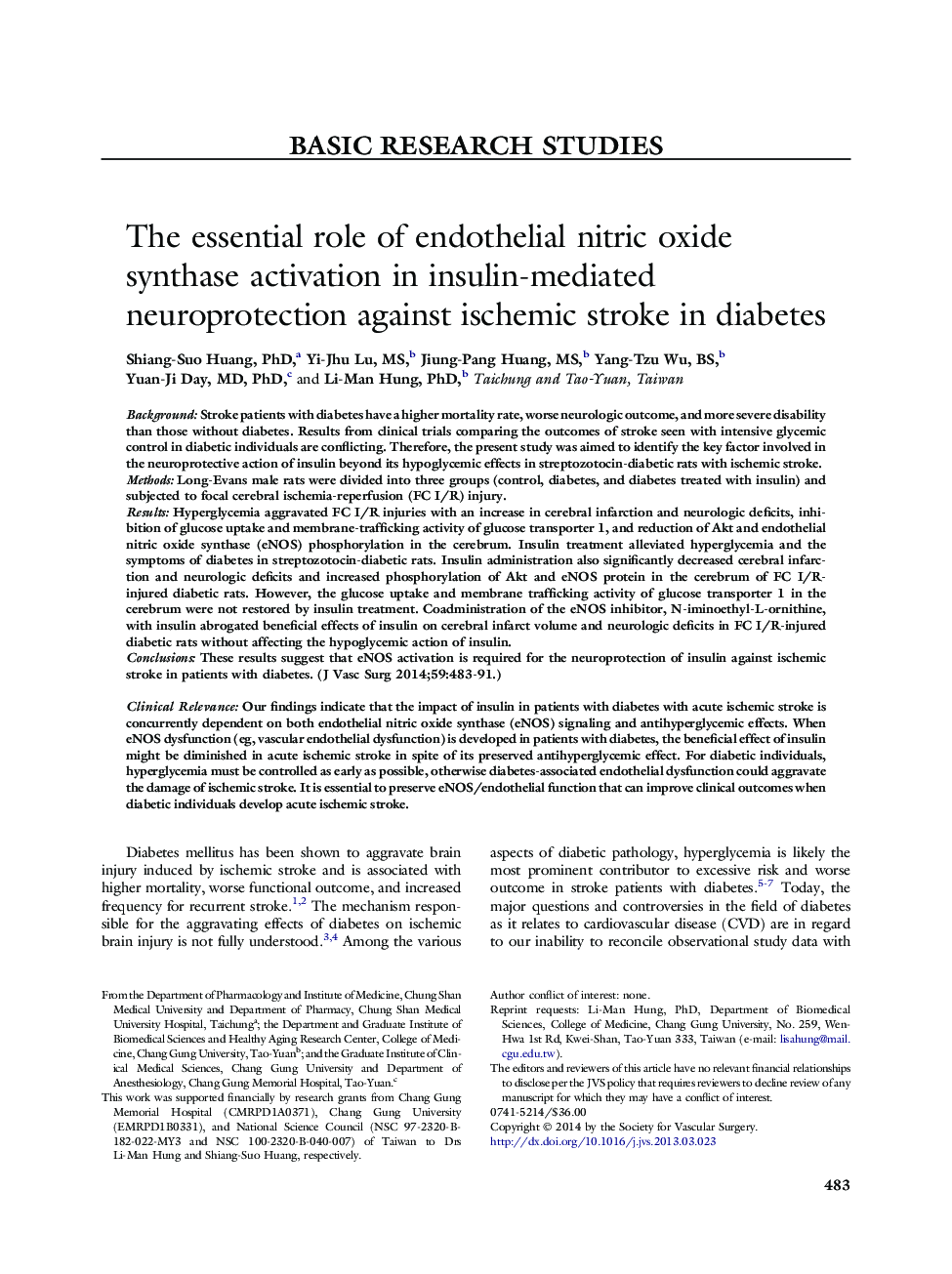| Article ID | Journal | Published Year | Pages | File Type |
|---|---|---|---|---|
| 2988942 | Journal of Vascular Surgery | 2014 | 9 Pages |
BackgroundStroke patients with diabetes have a higher mortality rate, worse neurologic outcome, and more severe disability than those without diabetes. Results from clinical trials comparing the outcomes of stroke seen with intensive glycemic control in diabetic individuals are conflicting. Therefore, the present study was aimed to identify the key factor involved in the neuroprotective action of insulin beyond its hypoglycemic effects in streptozotocin-diabetic rats with ischemic stroke.MethodsLong-Evans male rats were divided into three groups (control, diabetes, and diabetes treated with insulin) and subjected to focal cerebral ischemia-reperfusion (FC I/R) injury.ResultsHyperglycemia aggravated FC I/R injuries with an increase in cerebral infarction and neurologic deficits, inhibition of glucose uptake and membrane-trafficking activity of glucose transporter 1, and reduction of Akt and endothelial nitric oxide synthase (eNOS) phosphorylation in the cerebrum. Insulin treatment alleviated hyperglycemia and the symptoms of diabetes in streptozotocin-diabetic rats. Insulin administration also significantly decreased cerebral infarction and neurologic deficits and increased phosphorylation of Akt and eNOS protein in the cerebrum of FC I/R-injured diabetic rats. However, the glucose uptake and membrane trafficking activity of glucose transporter 1 in the cerebrum were not restored by insulin treatment. Coadministration of the eNOS inhibitor, N-iminoethyl-L-ornithine, with insulin abrogated beneficial effects of insulin on cerebral infarct volume and neurologic deficits in FC I/R-injured diabetic rats without affecting the hypoglycemic action of insulin.ConclusionsThese results suggest that eNOS activation is required for the neuroprotection of insulin against ischemic stroke in patients with diabetes.
Clinical RelevanceOur findings indicate that the impact of insulin in patients with diabetes with acute ischemic stroke is concurrently dependent on both endothelial nitric oxide synthase (eNOS) signaling and antihyperglycemic effects. When eNOS dysfunction (eg, vascular endothelial dysfunction) is developed in patients with diabetes, the beneficial effect of insulin might be diminished in acute ischemic stroke in spite of its preserved antihyperglycemic effect. For diabetic individuals, hyperglycemia must be controlled as early as possible, otherwise diabetes-associated endothelial dysfunction could aggravate the damage of ischemic stroke. It is essential to preserve eNOS/endothelial function that can improve clinical outcomes when diabetic individuals develop acute ischemic stroke.
